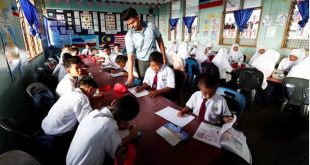The Melaka Action Group for Parents in Education said that the current final exam in Grade 4 forces students to study many subjects.
PETALING JAYA: An education advocacy group has called on the government to introduce tests for Grade 3 students, saying the current test system that starts at Grade 4 places a heavy burden on students because of differences importance between primary and secondary schools.
The Melaka Action Group for Parents in Education (Magpie) said that the final examination of the Academic Subjects (UASA) which is currently held in Grade 4 requires students to review the subjects covered from Grades 1 to 3, make it bigger than most. The UASA replaced national central exams like the UPSR for Grade 6 and PT3 for Grade 3 students, which were phased out in 2021 and 2022 respectively.
School exams are held every year for students in years 4 to 6 and years 1 to 3. Mak Chee Kin
Mak Chee Kin.
Magpie principal Mak Chee Kin said that apart from having UASA exams for Grade 3 students, such exams should be conducted every semester to keep them on their toes. “The Education Ministry should understand that it is not only classroom testing that needs to be improved, but also the behavior of students, who are reluctant to touch their books if there are no ‘tests’ (such as UPSR and PT3),” Mak told FMT.
Responding to the government’s insistence on conducting the UASA exams, Education Minister Fadhlina Sidek said this is in line with international best practices. Fadhlina said the assessment is not just about classes but also includes physical education, sports, extracurricular activities and psychometrics.
Anuar Ahmad of Universiti Kebangsaan Malaysia rejected the government’s willingness to support school exams after he said some classes had 45 students. Education expert says compact curriculum issues need to be addressed at primary level to improve teaching.
Free Malaysia Today
Anuar Ahmad. “We know that classroom monitoring is better and more comprehensive, but are teachers ready? Is our education system ready?” asked Anuar. “A crowded school means there is more to teach and there are more types of students in the classroom.
“How can a teacher ensure that everything in the curriculum is taught, especially in a class full of students?”
